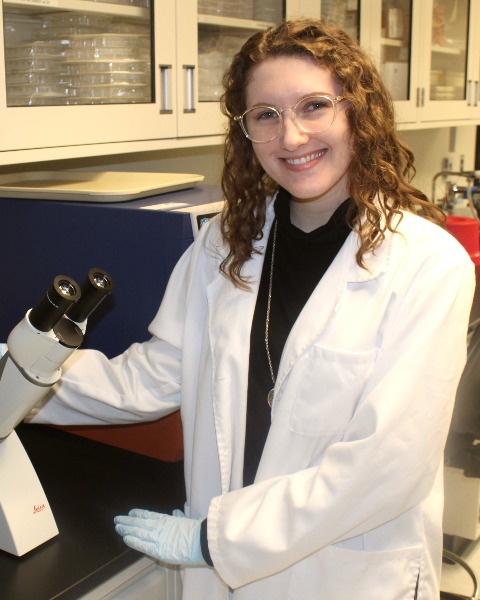Student Poster Display
Medical, Urban, and Veterinary Entomology
Student
Student Competition
D3178: Masculinization of the female Aedes aegypti proboscis for vector-born disease control
- MR
Makayla V. D. Roberts
Texas A&M University
League City, Texas 
Esmé Cope
Graduate Student
Texas A&M University
College Station, Texas- ZA
Zach N. Adelman
Professor
Texas A&M University
College Station, Texas
Presenting Author(s)
Co-Author(s)
The yellow fever mosquito, Aedes aegypti, is a prolific pest and vector of many pathogens. These pathogens are spread when an infected female mosquito blood feeds. Male mosquitoes are solely nectar feeders and exhibit sexual dimorphism in the proboscis, rendering them incapable of penetrating vertebrate skin. Previously, we produced partially masculinized female Aedes aegypti transgenic lines though the integration of the male determining factor Nix, and observed that these lines were not capable of blood feeding. We identified through dissections and image analysis comparing wild-type male, female and transgenic strains that the partially masculinized females had fully converted male-like mouthparts. To build on this, we aim to purposefully masculinize only the proboscis of the female Aedes aegypti by placing Nix under the control of proboscipedia, a gene known to affect dipteran proboscis morphology. To confirm the role of proboscipedia is conserved, we developed CRISPR/ Cas9 reagents for this gene targeted to exons devoid of SNPs, designed high resolution melt analysis assays, and generating sgRNA for embryo injections, with the expectation that somatic/germline editing will result in deformed mouthparts. Once confirmed, a Nix knock-in will be completed which is expected to produce female Aedes aegypti with masculinized proboscises. As it is expected that the Nix knock-in mosquito transgenic lines will not be able to penetrate vertebrate skin, this could be a viable way to control the spread of mosquito-borne diseases as these mosquitoes should not be able to blood feed on humans and therefore not be able to transmit these pathogens.

.png)

